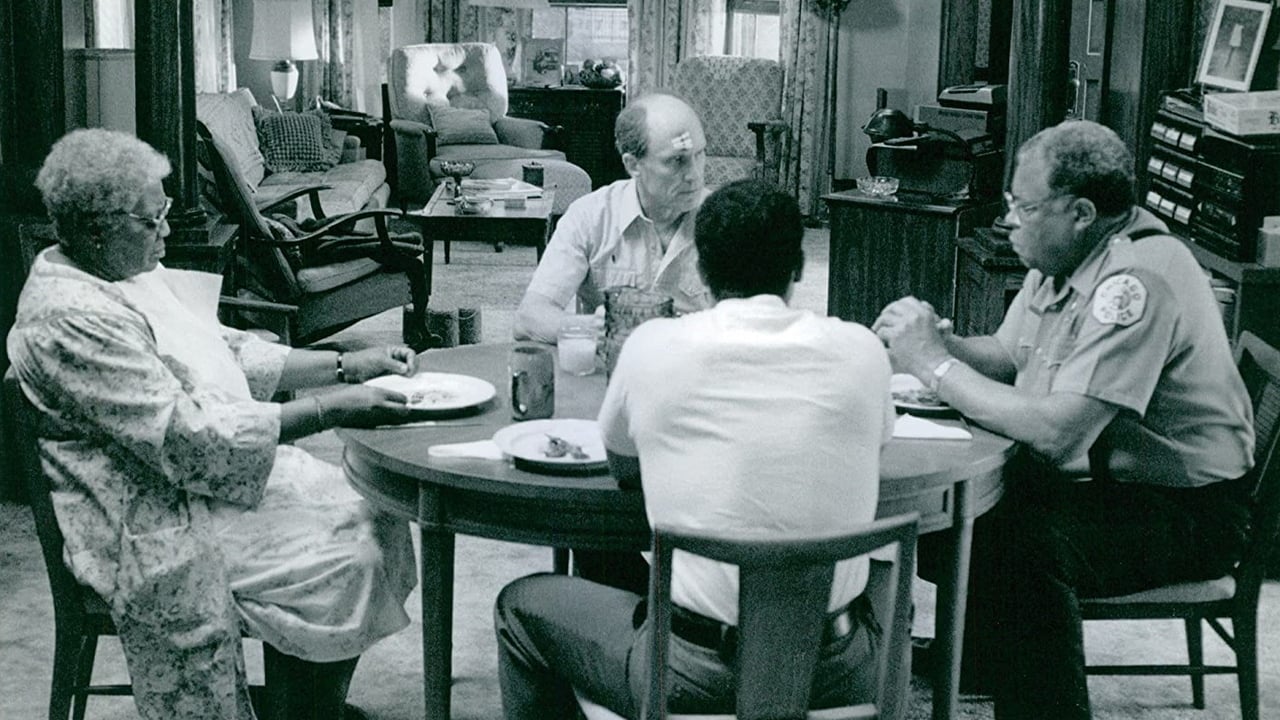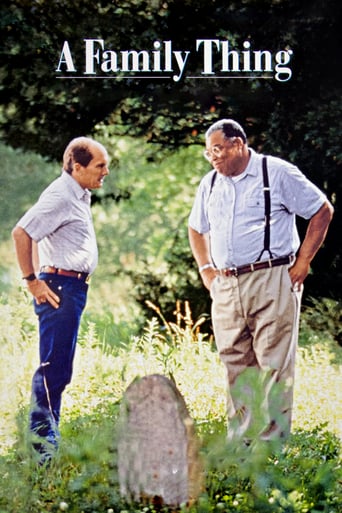

While some may think a white child with a black parent is a rare occurrence, a recent story revealed that the mother of six of Thomas Jefferson's children was a black slave by the name of Sally Hemming. Richard Pearce's A Family Thing is a modern day fictional example of such racial mixing. The film is a comedy but has serious overtones in its thoughtful look at America's racial divide. When 60-year-old Earl Pilcher's elderly mother Carrie dies, she leaves him a letter that the local pastor (Nathan Lee Lewis) delivers to him after her death. The Arkansas equipment rental manager is shocked to read in the letter that his real mother was Willa Mae (Patrice Pittman Quinn), an African-American who was impregnated by his father (James N. Harrell)."Nobody knew," the letter says, "because you came up white. Willie Mae died having you. I was right there." Needless to say, this piece of information does not sit well with Earl who was raised by the Pilchers and never questioned his heritage. To compound Earl's confusion and disbelief, he also finds out that he has an African-American brother, Ray Murdoch (James Earl Jones), who lives in Chicago. When Mrs. Pilcher implores Earl to find his brother, Piclher suddenly takes off to Chicago in his old pickup truck without telling his family the reason for his departure. In Chicago, he discovers that his brother Ray is a cop who works in the office of Chicago's mayor, that he knows all about him, and is not happy about seeing his brother again, blaming him for his mother's death.Finding himself in a dangerous part of town, Earl is held up, mugged, and has his truck stolen. After getting out of the hospital and needing a place to stay, he is reluctantly put up by his brother who lives in a flat with his son Virgil (Michael Beach) and his elderly, blind Aunt T (Irma P. Hall) who brought him up. Even though Ray tries to convince her that Pilcher is an old Army friend, the wise old woman isn't buying. "Stop BS-ing me," she says "Earl Pilcher -- I know all about your sorry half-black a -- ." Once they get over the shock of recognition, the plot unfolds in a predictable but highly entertaining manner as the brothers discover they have more in common than they thought.Earl gets drunk and winds up sleeping under a bridge. Virgil reveals that he had a serious leg injury that curtailed a promising football career and listens to some upbeat suggestions from his uncle. There is also a wonderful scene with Earl and his blind aunt shopping at a supermarket where she has memorized the inventory, and a moving flashback to Earl's birth. Though both Duvall and Jones are accomplished veteran actors, Hall steals the show and makes the film special. Old Aunt T. sums up the film's message when she says, "I don't have the blessing of being able to separate people out by looking at them no more." That kind of colorblindness is a blessing more people ought to have.
... View MoreThis movie is one of my all time favorites. It felt so real. My family has a story like this. The acting by all the cast members were awesome. It feels so real when you are watching the flick. I would love to see it come to Broadway as a show something like that or as a play or whatever. Aunt Tiara, Aunt T was great!!!!!Love her. "Now don't go forgetting about your old Aunt T"!!!!!!!!!She rocks.......James Earl Jones, who by the way is one of the best actors ever; was interviewed on the Diane Rimms radio show ca. 2006 and he said it was one of his favorites also! ....... Now then ..........the birthing scene WOW it was one of my best parts-- so real powerful and sad. I cried like a baby. Loved the soundtrack also, great music these songs where just perfect! Robert Duval was perfect, love him also....JKE Brooklyn, NY 2/1/2007
... View MoreAnother delightful collaboration of Robert Duvall and Billy Bob Thornton. How refreshing it is to be treated to non-Hollywood type characters that the viewer can identify with. Jones and Duvall are splendid, but like another reviewer says, the show stealer is Irma P. Hall.
... View MoreThis movie stars Robert Duval and James Earl Jones as sons of the same mother. Robert Duval's character is not legally adopted, but he is raised to believe that someone who is not his mother is his mother. This movie seems more interested in exploring racial issues, but not even that overtly. It makes certain that the pain of the mother is avoided as subject matter. It would be nice if all family members separated by adoption were able to accept each other this quickly and painlessly.
... View More